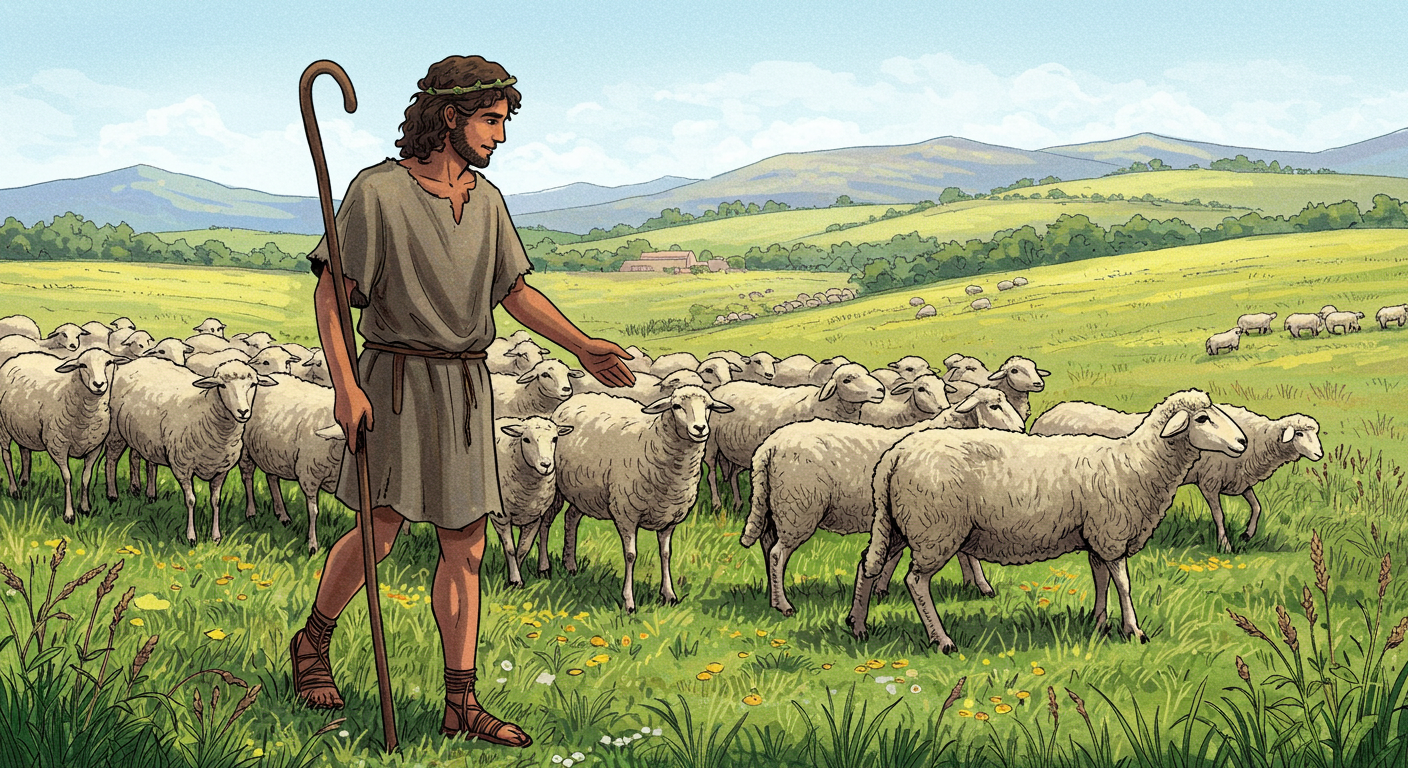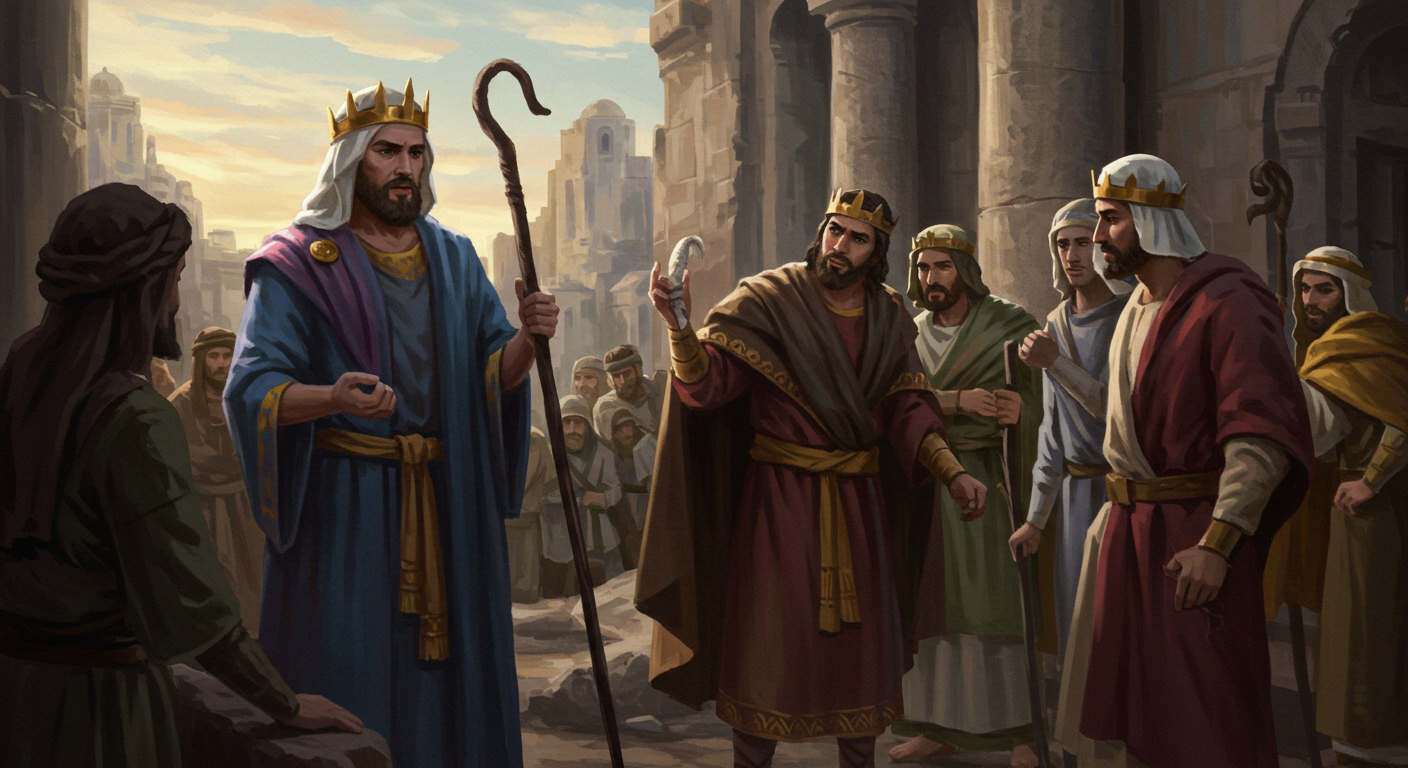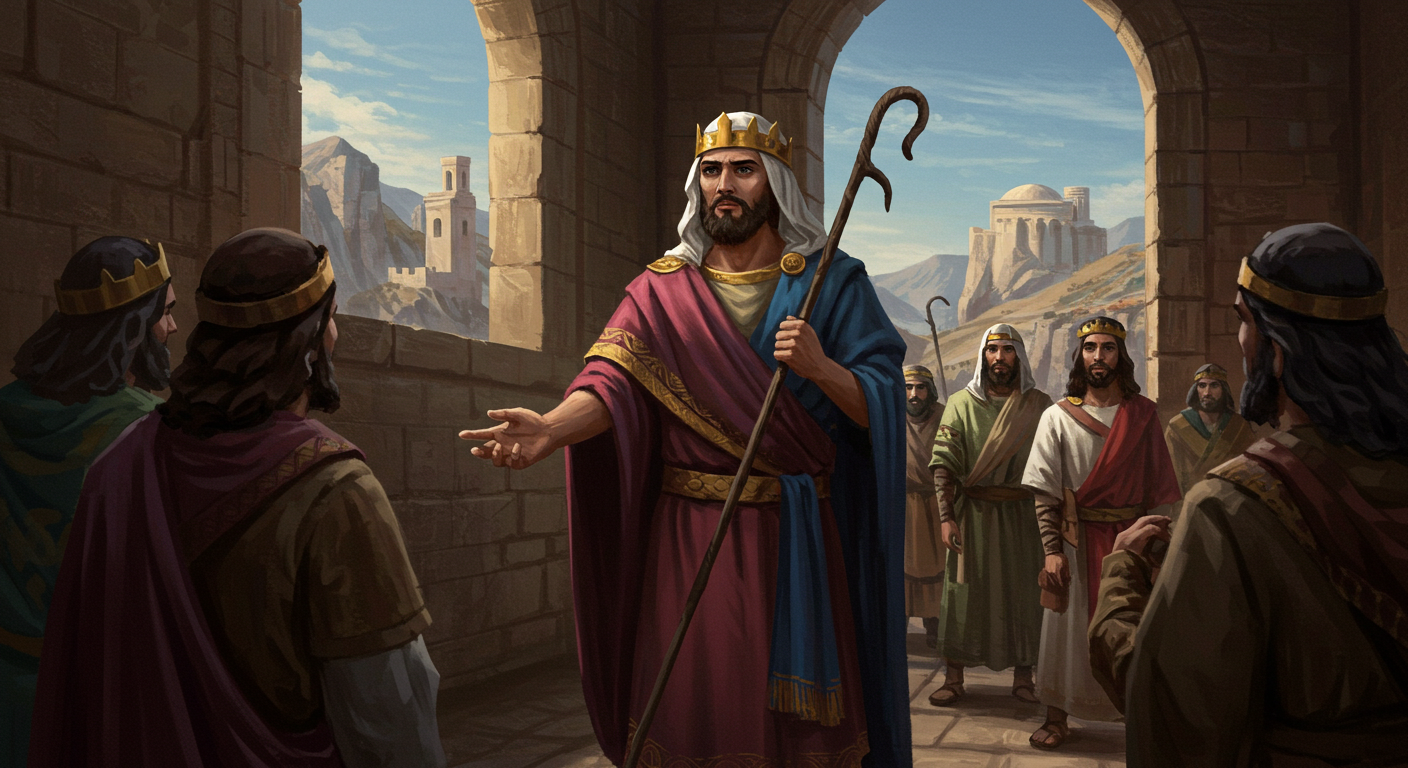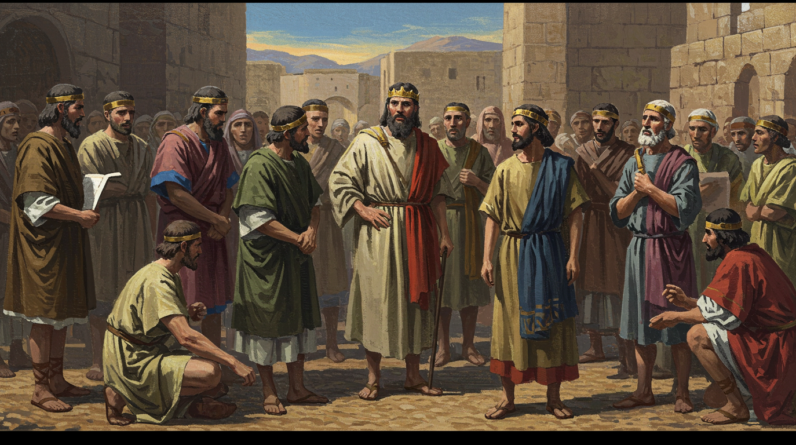Discover how a humble shepherd became Israel’s renowned king. Dive into David’s inspiring journey of faith, leadership, and legacy in this compelling article.
David: The Shepherd King of Israel

I. Introduction
Have you ever wondered how an ordinary shepherd boy could transform into one of Israel’s most celebrated kings? The story of David captures the fascination of generations, offering a rich tapestry of lessons in leadership, faith, and humanity. From the humble pastures of Bethlehem to the grandeur of Jerusalem, David’s journey is as extraordinary as it is profound.
David’s narrative is central to Israel’s biblical history. He is the shepherd turned king, a man after God’s own heart, whose leadership defined an era. His tale is filled with divine favor, epic battles, moral challenges, and enduring legacy, making his life incredibly relevant for those studying leadership and faith today.
The essence of this article is to delve into David’s impact on Israel’s history, exploring his unique brand of leadership, and drawing out the lessons his life story offers. By examining the intersections of his faith, failures, and fortitude, we’ll understand why he is immortalized as Israel’s ‘Shepherd King.’
II. Historical and Cultural Context
Israel in David’s Time
During David’s era, Israel was a confederation of tribes facing internal strife and constant threats from neighboring nations. It was a time when Israel’s unity was frail, and the need for a strong, unifying leader could not have been more pressing. This was a period characterized by sporadic tribal conflicts, external invasions, and spiritual waywardness.
The prevailing challenges meant that Israel required a leader who could unify the tribes, redirect its spiritual compass, and establish a centralized form of governance. It was within this tumultuous climate that David emerged as a leader who would not only stabilize the nation but also elevate its cultural and spiritual identity.
Setting the Stage
The socio-political conditions of David’s time necessitated the rise of a leader who could bring cohesion and direction. The Philistines, in particular, posed a significant external threat, frequently clashing with Israelite tribes. Internally, the lack of a centralized government led to instability and disunity. In this climate of chaos, David became a necessary figure, one whose leadership would set the foundation for a unified and prosperous Israel.
III. Biographical Overview
Early Life and Calling
David was born in Bethlehem, the youngest son of Jesse, hailing from the tribe of Judah. From an early age, he was known for his musical talent and courage, traits that would shape his future. While tending his father’s sheep, David was secretly anointed by the prophet Samuel to assume the future kingship of Israel, a calling that seemed improbable given his modest stature and status (1 Samuel 16:1-13).
David’s humble beginnings as a shepherd played a significant role in his life. His time with the sheep wasn’t just a vocation—it was a training ground that developed his skills in leadership, protection, and solitude with God. It was here that he penned psalms and cultivated a heart for worship.
Major Milestones and Events
David’s life is marked by milestones that define his rise from shepherd to sovereign. A key moment was his courageous battle with Goliath, where he, a mere teenager, defeated the giant Philistine champion with a simple sling and stone (1 Samuel 17). This victory catapulted him into national fame and set the stage for his eventual kingship.
As Saul’s successor, David navigated his way through complex court politics, ultimately becoming king first of Judah and later of the united Israel (2 Samuel 5). His reign saw major military victories, the establishment of Jerusalem as the capital, and the return of the Ark of the Covenant, solidifying his role as a leader both spiritually and politically.

IV. Key Biblical Narratives and Passages
Primary Scripture References
David’s life story is extensively chronicled throughout several biblical books. Key passages include 1 Samuel 16:1-13 detailing his anointing, 1 Samuel 17 which recounts his battle with Goliath, and 2 Samuel 5 describing his consolidation of Israel’s tribes under his kingship.
Contextual Analysis
These passages profoundly impact Israel’s historical narrative and religious thought. David’s anointing marks the divine choice and favors bestowed upon him, counteracting typical societal expectations of leadership based on birthright or power. His victory over Goliath illustrates faith overcoming overwhelming odds, encouraging believers to rely on spiritual strength.
In a broader context, David’s establishment as king underlines the necessity of a centralized government to Israel’s survival and flourishing at the time. This centralization paved the way for future prosperity and spiritual rejuvenation, foretelling Jesus’ lineage as a descendant of David.
V. Leadership Qualities and Challenges
Core Leadership Traits
David exhibited remarkable leadership qualities: bravery in facing formidable foes, compassion towards his people, wisdom in administration, and a heart attuned to divine guidance. His psalms reveal his humility and introspective nature, highlighting his deep reliance on God (Psalms 23).
Scholarship often notes David’s skillful diplomacy and strategic prowess in warfare, which helped unify the tribes of Israel, demonstrating his visionary leadership.
Challenges and Controversies
Despite his successes, David’s leadership was marred by personal failings, notably his moral lapse with Bathsheba and the resultant familial turmoil (2 Samuel 11). These moments reveal David’s vulnerability and humanity, emphasizing themes of repentance and forgiveness that resonate across ages. His leadership was as much defined by his failures and how he responded to them as by his victories.
VI. Legacy and Impact
Immediate Impact
David’s reign brought stability and prosperity to a fractured Israel, establishing Jerusalem as both a political and spiritual nucleus. His military conquests secured Israel’s borders and established a period of peace, contributing to the nation’s growth and cohesion.
Long-Term Influence
Beyond his immediate reign, David’s legacy endures significantly. He is a central figure in Jewish and Christian traditions, often seen as a forerunner to the Messianic lineage. The ‘Davidic Covenant’ assures the perpetuation of his line, pivotal in prophetic literature concerning the coming of the Messiah (2 Samuel 7:16).
His psalms continue to inspire, offering insights into human emotion, divine praise, and theological reflection. David’s story is retold across generations, imbuing new contexts with ancient wisdom and grounding spiritual teachings in lived experience.
Modern Relevance
David’s life offers abundant lessons for contemporary leaders. His story encourages leaders to acknowledge their humanity, embrace vulnerability, and seek divine guidance. The narrative illustrates how genuine contrition and a commitment to justice can restore even the most broken of leaders.
VII. Scriptural and Scholarly Analysis
Comparative Analysis
Comparative examinations of David’s accounts in 1&2 Samuel and 1 Chronicles emphasize differing aspects of his life. Samuel offers a more nuanced portrayal, highlighting God’s involvement amid human decision-making, whereas Chronicles tends to focus on David’s achievements and divine favor.
Theological Implications
David’s narrative invites various theological discussions, especially regarding divine kingship and covenantal promises. Theological debates often center on the interplay between divine providence and human agency seen throughout his life and governance. Such discussions are pivotal for understanding Messiah-related promises and their realization in Christian doctrine.

VIII. Conclusion
Summary of Key Points
David’s journey from shepherd to king showcases a fusion of divine will and human ambition, becoming a pillar in Israel’s past and spiritual heritage. His leadership, while divinely inspired, contains lessons in humility, courage, and repentance.
Final Reflections
From David, we learn that true leadership intertwines divine calling with human responsibility, urging us to marry faith with practice. Amid his triumphs and trials, we see the continual potential for redemption and impact.
Call to Reflection or Action
As leaders of today, what lessons can we glean from David’s life? How might we integrate authenticity and purpose into our pursuits? Reflect on these questions and consider sharing your thoughts.
Acknowledgment:
All Bible verses referenced in this article were accessed via Bible Gateway (or Bible Hub).






